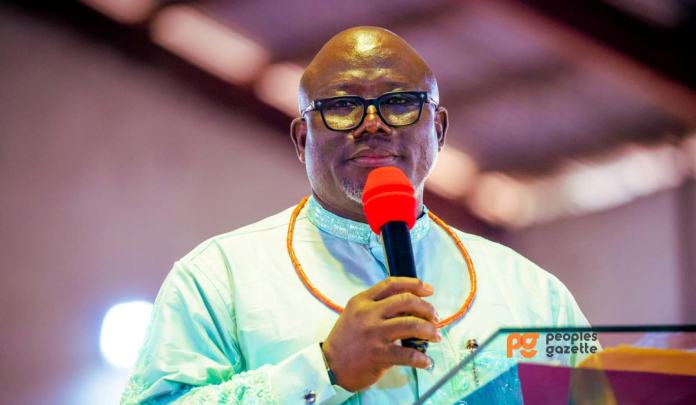Recently, Persons living with disabilities (PWDs) in Isoko North Local Government Area voiced their plight, alleging neglect in the distribution of essential palliatives. They appealed for Governor Sheriff Oborevwori’s intervention; a plea that underscores the daily struggles and injustices faced by some of society’s most vulnerable members, who find themselves further marginalized in times of need.
In a heartfelt letter to the Governor, Comrade Simeon Ikuta, Chairman of the Isoko North Chapter of the Joint National Association of Persons With Disability (JONAPWD), laid bare the harsh reality faced by PWDs. He articulated a deep sense of betrayal and neglect as the community, already grappling with numerous challenges, was sidelined in the distribution of essential palliatives.
“We write to draw the attention of the governor to the ongoing distribution of the second round of palliatives in which no attention has been given to us by the coordinators of the distribution,” the statement read. The sense of exclusion was palpable, reflecting the broader issues of marginalization and neglect that PWDs face daily.
At the heart of this neglect lies a pervasive issue—corruption. When resources meant for the most vulnerable are siphoned off or mismanaged, the repercussions are dire. Corruption in palliative distribution is not just a matter of inefficiency; it is a theft of hope, a betrayal of trust, and a perpetuation of suffering.
For PWDs, the impact of corruption is compounded by their already precarious circumstances. Many live with limited access to healthcare, education, and employment opportunities. When palliatives meant to alleviate their struggles are diverted, it deepens their hardship and erodes their dignity.
Corruption’s human cost is starkly evident in the stories of individuals left behind. Consider the mother who cannot access palliatives to feed her child, the elderly man who cannot afford medication, or the young woman with a disability who faces additional barriers due to societal neglect.
The voices from Isoko North are not just cries for help; they are calls to action. “We wish to state categorically here that we just heard with our ears that palliative distribution was going on at the first instance but before we knew it, it was all over. This is the second time,” the letter continued. Such experiences highlight a pattern of exclusion that cannot be ignored.
In addressing this issue, it is imperative to provoke a collective conscience. The society must ask itself: What kind of community do we want to be? One that turns a blind eye to the suffering of the most vulnerable, or one that stands in solidarity, ensuring that everyone, regardless of their abilities, receives the support they need?
Governor Oborevwori has a critical role to play. The PWDs’ letter reflects a faith in his leadership—a belief that he is a listening governor who can address their serious plight. “We call for your intervention because we know that you are a listening governor on the serious plight of persons living with disability,” they said. This call to action is not just a plea for help but a test of governance and empathy.
To avert the continued neglect of PWDs and other vulnerable groups, several steps must be taken and they include establishing clear, transparent processes for palliative distribution. This includes publicizing lists of beneficiaries and ensuring community oversight.
Other measures are to develop and implement policies that specifically address the needs of PWDs. This involves consulting with PWD organizations to understand their unique challenges and ensuring their inclusion in all government programs.
Also, holding those responsible for corruption accountable would also go a long way to tackle corruption. This requires a robust legal framework and the political will to pursue justice, regardless of the individuals involved.
Fostering a culture of empathy and solidarity within the community as well as encouraging citizens to advocate for the rights of PWDs and other marginalized groups is sure to create a collective force against corruption.
Ensure that resources are allocated fairly and reach those who need them most is no doubt critical in this campaign. This involves regular audits and the use of technology to track distribution.
Government alone cannot combat corruption and ensure justice for PWDs. Other stakeholders have crucial roles to play: These include Civil Society Organizations (CSOs), media, international organizations and the private sector.
The voices from Isoko North remind us that a society’s true measure lies in how it treats its most vulnerable members. The alleged neglect of PWDs in palliative distribution is a reminder of the work that remains. However, it also presents an opportunity—a chance to build a more inclusive, just, and compassionate society.
Governor Oborevwori’s intervention can be the turning point. By addressing the grievances of PWDs and ensuring fair distribution of palliatives, he can set a precedent for other leaders. More importantly, he can restore faith in governance and reaffirm the principle that every citizen, regardless of their abilities, deserves dignity and support.
The fight against corruption is not just a battle for resources; it is a fight for the soul of society. Let us heed the call of the vulnerable, challenge the status quo, and work together to build a future where everyone is valued and supported. For in the words of Comrade Ikuta and his community, “We are as good as every other citizen in the state.” It is time to prove that these words are not just rhetoric, but a reality we all strive to uphold.


